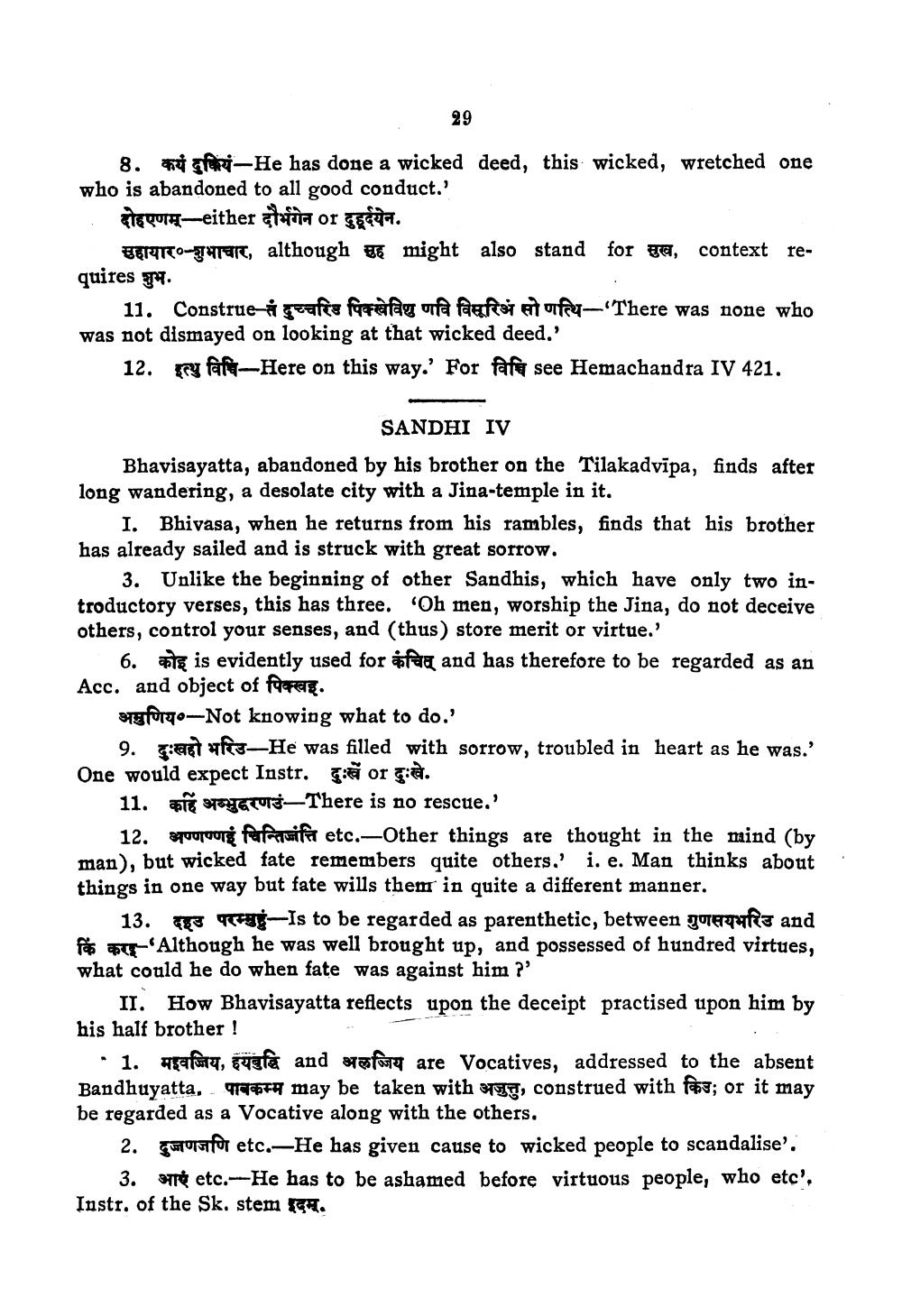________________
29
8. Hari-He has done a wicked deed, this wicked, wretched one who is abandoned to all good conduct.'
Tepur-either statia or geta. __ मुहायार० शुभाचार, although मुह might also stand for सुख, context requires शुभ.
11. Construe- reafte forefay fa fasta fu-'There was none who was not dismayed on looking at that wicked deed.'
12. raft-Here on this way.' For Afe see Hemachandra IV 421.
SANDHI IV
Bhavisayatta, abandoned by his brother on the Tilakadvipa, finds after long wandering, a desolate city with a Jina-temple in it.
1. Bhivasa, when he returns from his rambles, finds that his brother has already sailed and is struck with great sorrow.
3. Unlike the beginning of other Sandhis, which have only two introductory verses, this has three. "Oh men, worship the Jina, do not deceive others, control your senses, and (thus) store merit or virtue.'
6. He is evidently used for fare and has therefore to be regarded as an Acc. and object of former. og forzo-Not knowing what to do.'
wr-He was filled with sorrow, troubled in heart as he was.' One would expect Instr. दुःखें or दुःखे.
11. Speyacurg—There is no rescue.'
12. urvorg forfait etc.-Other things are thought in the mind (by man), but wicked fate remembers quite others.' i. e. Man thinks about things in one way but fate wills them in quite a different manner.
13. 15 -Is to be regarded as parenthetic, between gothiquis and paper -Although he was well brought up, and possessed of hundred virtues, what could he do when fate was against him ?'
II. How Bhavisayatta reflects upon the deceipt practised upon him by his half brother !
• 1. मइवजिय, हयबुद्धि and अलज्जिय are Vocatives, addressed to the absent Bandhuyatta, 791974 may be taken with 97, construed with fans; or it may be regarded as a Vocative along with the others.
2. gwarafor etc.—He has given cause to wicked people to scandalise',
3. 4rg etc.--He has to be ashamed before virtuous people, who etc', Instr, of the Sk. stem .




